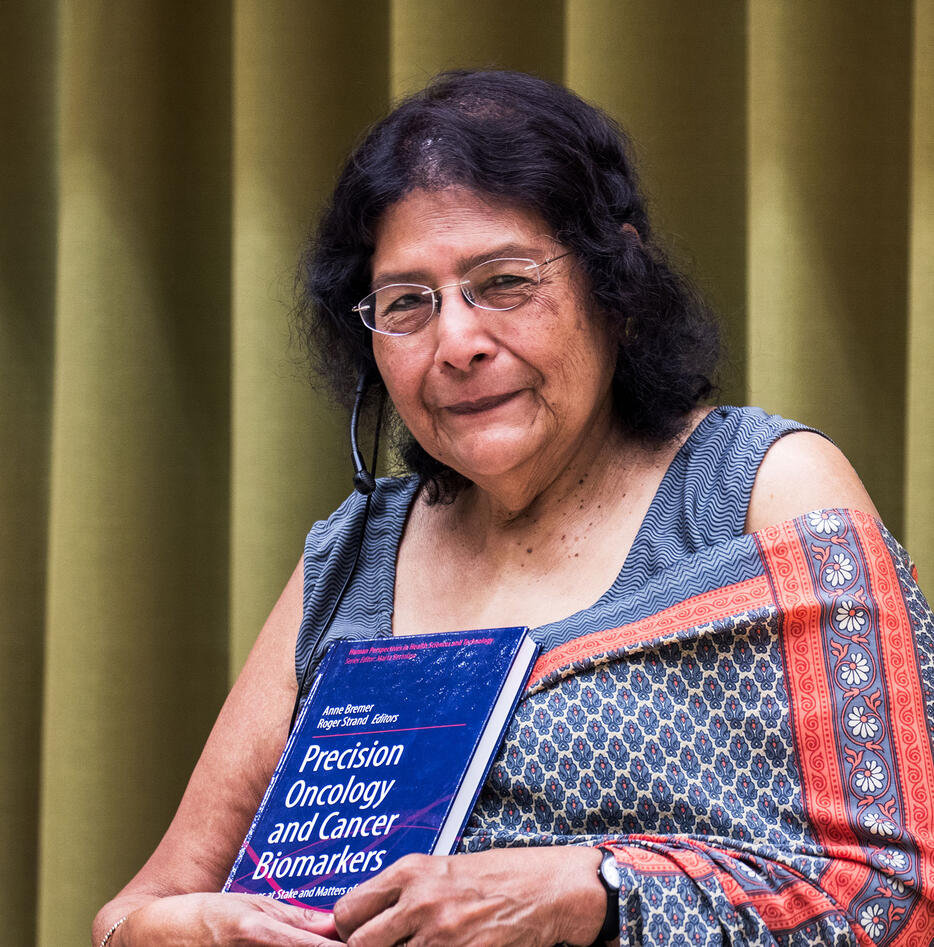Making Sense of Science and Making Sense of Life
Friday June 10th, CCBIO and the Holberg Prize hosted a Special Seminar with the 2022 Holberg Laureate, Sheila Jasanoff (Harvard University) in conversation with Stephen Hilgartner (Cornell University). The seminar was called “Can science make sense of life?”, referring to Jasanoff’s recent and eponymous book. This was the first time the Faculty of Medicine had the opportunity to welcome a Holberg prize winner, an occasion more than 110 from the medical community at Haukeland University Hospital and from several other fields at UiB embraced to gain new insights on their research.

Hovedinnhold
Cross-disciplinary field
The event focused on the social dimensions and politics of biomedicine and biotechnology, with the arguably two highest authorities in the field. Jasanoff and Hilgartner are internationally leading scholars in Science and Technology Studies (STS) and have done extensive research on the social dimensions and politics of biomedicine and biotechnology (among other fields). In their conversation, they explained how their field studies not only the institutions and practices of knowledge production, in laboratories and elsewhere, but also how such practices both shape and are shaped by other institutions and practices, in law, policy, research funding et cetera. For example, they have recently undertaken a comparative study of governmental responses to covid-19 in 16 different countries.
Making sense of science and life
In short, their work attempts to make sense of science, and life science in particular. But what about life science? Can it make sense of life? In order to answer that question, Jasanoff and Hilgartner explained, one has to realize that “sense” has several meanings. One concrete example that was discussed also in the subsequent Q&A session, was human infertility. Medical research has provided humanity with knowledge and technology – notably IVF techniques – to help overcome involuntary infertility. In that way, science makes (scientific and technical) sense of the condition. However, sometimes the scientific ideas also migrate into human culture and self-understanding, for instance by classifying infertility as a disease and thereby giving it connotations of pathology. This amounts to a medicalisation that may suppress other ways of making sense of life. The question is accordingly not so much if science can make sense of life, but rather when, and in which circumstances, it should do so.
New reflections on cancer biomarkers
Host of the event, CCBIO and SVT Professor Roger Strand was thrilled to have Jasanoff and Hilgartner visit the CCBIO:
"Their work is an important foundation for our own work on the ethical and societal aspects of cancer biomarkers, and we have been fortunate to enjoy Prof Jasanoff’s continued support, intellectually as well as institutionally, for many years. Her Holberg Prize is so well deserved, and it was wonderful that a large audience at the Faculty of Medicine could get a glimpse of her work and the field of STS today."
Lars A. Akslen, Director of CCBIO, continues:
"This seminar was truly inspirational and provided some clues on how to reflect on what we do in a centre like CCBIO. Many congratulations to Sheila Jasanoff for receiving the 2022 Holberg Prize, and thank you to her and Stephen Hilgartner for sharing some of their wisdom at the medical campus."

